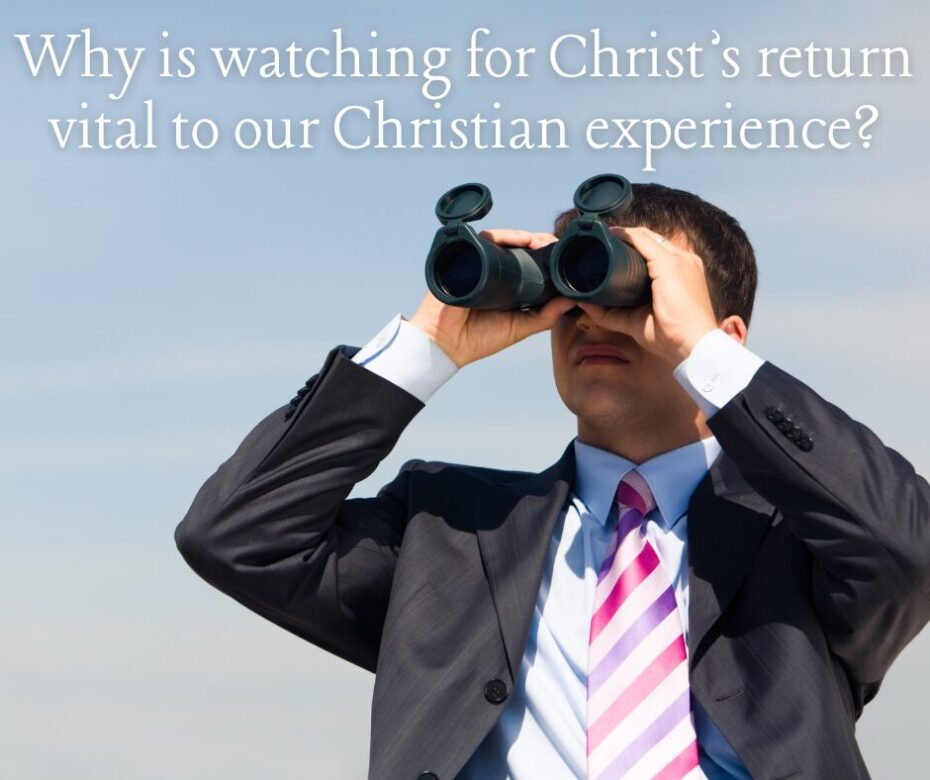On March 17, 1942, General Douglas MacArthur left the Philippines because the islands were about to be overrun by enemy forces. But he famously vowed, “I shall return.”
Two–and–a–half years later, on October 20, 1944, General MacArthur gave his famous “I Have Returned” speech on Leyte Island in the Philippines. It is one of the most memorable statements from World War 2.
During those thirty-one months, the people of the Philippines were waiting for his soon return. They endured many difficulties because they knew that MacArthur would keep his promise, return, and set them free.
Bill Fiess calls Jesus’ command to watch for His soon return (Matt 24:42-44) the forgotten commandment. He’s right.
Most Evangelicals do not believe in the Rapture and the soon return of Christ. Many even mock the idea that Jesus is coming to rescue us. They don’t think we are to watch for His soon return. They see that as a cop-out. We are to get busy seeing to it that God’s will is done on earth more and more each passing day.
The Lord Jesus said, “Watch therefore, for you do not know what hour your Lord is coming. But know this, that if the master of the house had known what hour the thief would come, he would have watched and not allowed his house to be broken into. Therefore, you also be ready, for the Son of Man is coming at an hour you do not expect” (Matt 24:42-44).
Notice the repetition of the word coming, which is parousia in Greek.
Notice, too, that He calls two times for us to watch until He returns.
The Lord was talking about the Rapture, which could have occurred in any century for any generation and could occur at any time today.
The Lord not only commanded us to remain watchful but also explained why that is crucial to our sanctification. Immediately after calling us to be watchful, He gave three parables: the just and unjust servant (Matt 24:45-51), the ten virgins (Matt 25:1-13), and the talents (Matt 25:14-30). All three parables concern ruling with Christ and other everlasting rewards.
Watching for His soon return is vital to sanctification because accountability is essential to holy living.
The apostles also said that watching for Christ’s soon return is vital to sanctification. Paul uses the same word, watch, in 1 Thess 5:6, 10 about Christ’s soon return. He tied watchfulness to eternal rewards in 2 Tim 4:8: “Finally, there is laid up for me the crown of righteousness, which the Lord, the righteous Judge, will give to me on that Day, and not to me only but also to all who have loved His appearing.” Only those who are watching for His coming will love His appearing.
Peter used the same word, watch, about Christ’s return in 1 Pet 4:7: “But the end of all things is at hand; therefore be serious and watchful in your prayers.” Our prayers should be watchful prayers.
In 2 Pet 3:10–12, Peter speaks of the Day of the Lord coming as a thief in the night–the same image the Lord used in Matthew 24.
The theme verse of John’s first epistle, 1 John 2:28, emphasizes the need to watch for Christ’s soon coming: “And now, little children, abide in Him, that when He appears, we may have confidence and not be ashamed before Him at His coming.”
Watching for Christ’s soon return is a key to sanctification.
I came to faith in Christ for irrevocable salvation during the Jesus Revolution. Belief in the Rapture and Christ’s soon return was a key part of the Jesus Revolution. A common saying then was, “It’s all gonna burn.” We knew that treasure on earth is fleeting.
The song Come Jesus Come by Stephen McWhirter conveys the importance of watching for His soon coming:
Come Jesus come
We’ve been waiting so long
For the day You return to heal every hurt
And right every wrong
We need You right now
Come and turn this around
Deep down I know this world isn’t home
Come Jesus come
Come Jesus come
You can hear CeCe Winans’ beautiful version of the song here.
The Lord Jesus told us where our focus should be until He comes again: “Watch therefore, for you do not know what hour your Lord is coming.”
Keep grace in focus.


